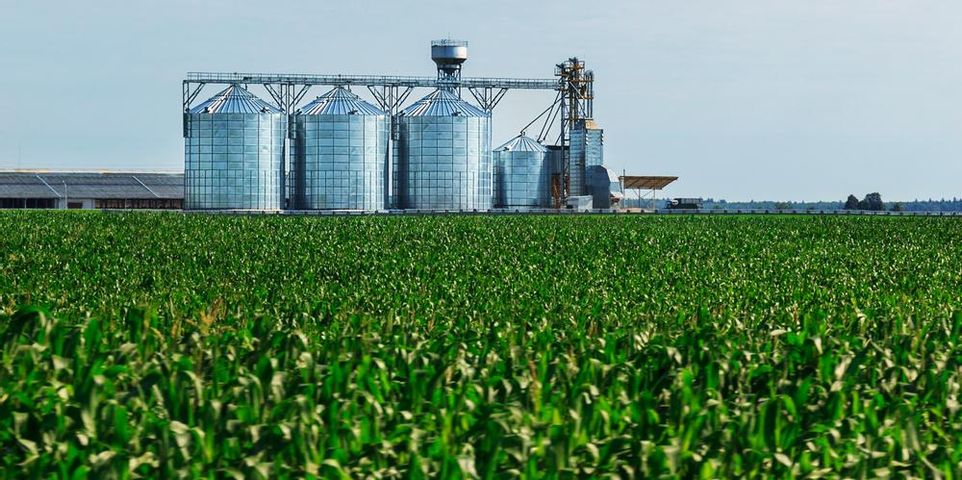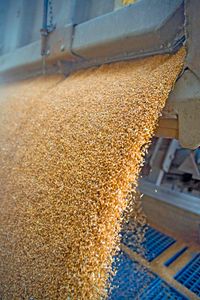4 Tips From Agronomy Experts for Long-Term Grain Storage

In the farming industry, there are many times when you’ll have to store your grain until the following year to ensure you receive the best possible price when selling it, which is why proper preparation and storage is important. Allied Cooperative in Adams, WI, knows how much a silo of spoiled grain can cost a farmer, so they’ve assembled a few storage tips for you below.
4 Long-Term Grain Storage Tips From Farming Experts
1. Prepare the Area
The first step toward keeping your grain in good shape is properly preparing your bins, which starts with washing them thoroughly. When cleaning out the storage area, make sure there’s no evidence of bugs or grain leftover from the previous year. It’s also important that you’re placing quality grain into storage, as this will ensure that it remains in good shape and minimizes the chance of spoilage.
2. Monitor Moisture Content
Temperature and moisture content can greatly affect the quality of the grain you store, so it’s important to have a good idea of the optimal moisture content when loading yours into bins for the coming year. Ideally, for long-term storage, you’ll need to dry your grain at a lower moisture level; you can find a helpful reference table that includes optimal temperature and moisture levels for grain storage here.
3. Aerate the Grain
 One way to ensure the grain you store remains intact until the following year is by using a grain spreader during the loading process to improve aeration. This will also help distribute fines adequately throughout the bin it’s stored in. For larger amounts of grain, repetitive coring is recommended to prevent fines from winding up concentrated in the middle of the bin, rather than distributed evenly throughout it.
One way to ensure the grain you store remains intact until the following year is by using a grain spreader during the loading process to improve aeration. This will also help distribute fines adequately throughout the bin it’s stored in. For larger amounts of grain, repetitive coring is recommended to prevent fines from winding up concentrated in the middle of the bin, rather than distributed evenly throughout it.
4. Monitor Temperature
Being able to maintain a steady temperature when storing your grain for an extended period is extremely important, so placing temperature-sensitive cables in the bin with the grain you’re storing is always recommended. In addition to monitoring these cables on a regular basis, it’s also a good idea to take your area’s climate into account, as well as any regional and seasonal factors that may also affect its storage.
Keeping your grain stores intact until the following year involves a lot of hard work and oversight, so if you have any additional questions, don’t hesitate to contact the experts from Allied Cooperative. To learn more produce storage tips, call them today at (800) 247-5679, or visit them online for an in-depth look at their farming services.
About the Business
Have a question? Ask the experts!
Send your question

